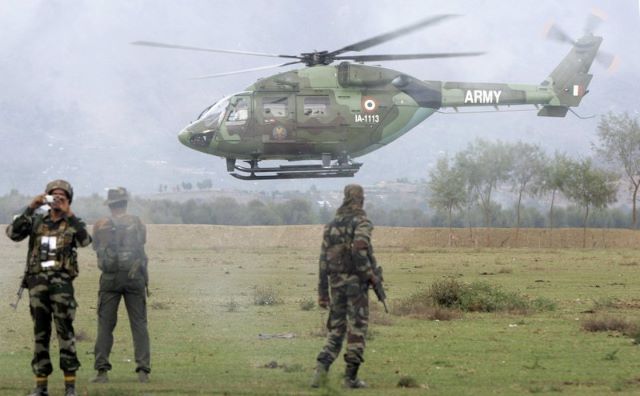
While his statement was clinical and accurate, the choice of words may not have been politically the most appropriate — no death of a citizen can be dismissed as “small” by the leader of a democratic country.
One presumes the prime minister was not keen on an open discussion on the subject since it pertains to an in-house matter – discipline within a military unit – that falls within the organizational purview of the Indian Army.
For a one million strong army, this suicide, while tragic in a relatively minor empirical occurrence, an in-house inquiry into the internal cohesion and professionalism is imperative.
From the ignominy of the ketchup colonel, the booze briagdier and the ‘dal’ general and more recently the Sukhna and Adarsh real estate scandals, the Indian Army has been convulsed with varied transgressions and a lowering of its ethical and professional standards.
In 2012, there were two cases of serious breakdown in officer-soldier relations in units tasked with low-intensity-conflict duties. The recent suicide is indicative of the internal stress and tension the Indian Army has to address.
These are matters the army needs to review in an objective and candid way. There may be a case for an independent commission to empathetically review as to what ails the Indian Army.
The status accorded to the military varies from country to country and is a complex derivative of the history of the nation, its political character and the manner in which valour is perceived.
In authoritarian regimes, the military has a special status. In Pakistan, it has subsumed the state for decades.
Democracies have a more complex relationship with their military. The soldier and the patriotism and gallantry inherent in the profession is recognized by the state and society. In India, the military has a curious and ambivalent status apropos the state structure and society at large.
Since 1947, the Indian military as an institution has been kept outside of the formal structure of the state due to Prime Minister Jawaharlal Nehru’s distaste for the profession of arms. Successive prime ministers kept the military aloof. Consequently the ‘fauj’ occupies a twilight zone, where it is neither fish nor fowl.
While the elected political representative aree the new ruler in India, the civilian bureaucracy have become astute mediators of the pursuit and consolidation of power and status in the world’s largest democracy.
The progressive denigration of the armed forces by the state and society has led to a steady erosion of military morale – a danger the prime minister alluded to in parliament. The apathy of the Indian state is best illustrated by the manner in which the Manmohan Singh government has dealt with pay and allowances for the soldiers.
An objective review of the manner in which the pay, allowances and status of the military have been lowered over the last two decades reveals some startling facts. The military is the outcaste in the Indian state matrix, but lacks a Gandhi or an Ambedkar to take up their cause.
The average ‘fauji’ retires at a much younger age than the civilian counterpart who serves up to age 60. An empathetic state would have ensured that the inter se fixing of pay, allowances and pension would be equitable. Alas, this is not the case. Many anomalies abound.
Pay commissions do not have a military representative. Review committees have the same pattern. The military remains invisible and their grievances ignored.
Things have come to such a pass that the three serving chiefs have expressed their dismay over how pay and pensions for serving and retired military personnel are being addressed.
Minister A.K. Antony in turn has cautioned the prime minister that if not redressed, this issue could take “a bad turn”.
The UPA had a rare opportunity to address and redress the long festering inequities regarding the military and the larger issue of rewiring the security establishment. But Manmohan Singh and his cabinet chose not to pick up the gauntlet – till the last lap of UPA II when the Naresh Chandra Task Force was set up to review the post Kargil security sector reforms.
Manmohan Singh’s Aug 15 address will be closely monitored for the policy initiatives he will hopefully unveil to assuage the bruised morale of the military – and avoid the ‘bad turn’ which otherwise seems inevitable.
By: C. Uday Bhaskar (IANS)
The opinions, beliefs and viewpoints expressed by authors, news service providers on this page do not necessarily reflect the opinions, beliefs and viewpoints of Hill Post. Any views or opinions are not intended to malign any religion, ethnic group, club, organization, company, or individual.
Hill Post makes no representations as to the accuracy or completeness of any information on this site page.


